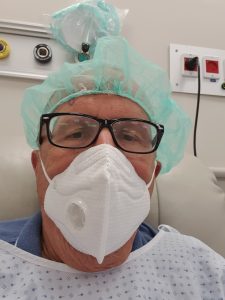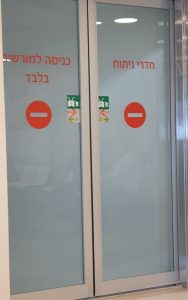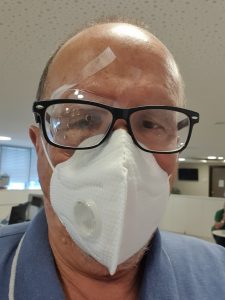Martin my optometrist told me ten years ago that I had 2 cataracts which were ready for extraction. Born in London, “Mahtin” is a by-the-book type of guy; he added that “you should not waste money on new glasses every year or less, just have the cataracts done”.
Were I to be honest, I could not say that I am merely frightened of doctors. That is incorrect. I am absolutely petrified of any visit to any doctor, except to a dentist which for some strange reason, I do not fear at all. Of course, many people fear dentists more than doctors, but I guess we all have our own bizarre nature. There are no words to describe how much I fear a visit to a doctor.
When I visit a doctor, not only does my blood pressure soar, but I sleep poorly the night before. I imagine that only bad news will come my way, and that any ailment that might be found is incurable.
Of course I know that the only incurable thing about me is my fear of doctors, but knowing that does not really help. At all.
I waited ten years (and 15 changes of glasses) to finally get the cataracts done. After endlessly complaining about the “size” of street signs, the lack of street lighting, the unclear size of train station signs, the very small print of the newspaper, I was faced with unrelenting internal and external pressure to get this done.
First step was an eye doctor, who checked me out said to me, in a thick Argentinian accent, “I sure don’t want to drive with you at night”. I asked her for a recommendation to a surgeon, and was told that Prof Asya. is the gold standard. I checked my insurance and found out that I was fully covered. I then waited 7 gold standard months plus 7 weeks of corona during which the clinic was closed.
Today, at 915 AM, the second extraction took place and I am already sitting in front of my PC with perfect vision. Here is what happened today.
Upon entering the clinic, an attendant took my temperature questioning me icily about corona symptoms. This took one minute. Then an insurance approval was handed over another attendant who types and types and types as if she is printing an airplane ticket. Then I was asked to sit in front of a sign which ominously declares: Operation Theatre-Entrance only to authorized people. With me waited three other patients and we were seated far away from each other-another corona reality.
I starred at this bloody door for half an hour. After which, I was whisked into an anesthesiologist who asked me if I wanted a tranquilizer, which I did not. She asked me what my name is, which eye was to be operated on, my name, what eye was to be operated on until she made sure about who I am and why I was there.
Then into another room where my blood pressure was taken twice because for most people, not only me, B P is sky high measured the first time before an operation. Then my pupil was dilated with about 20 eye-drops “until you look like an owl”, words of the nurse in charge.
From there to the laser machine, where I was strapped down and told “don’t move, talk, cough or sneeze” and for about 30 seconds, I saw nothing but a very strong light. After which I was told to stand up and walk to the operating room and asked to sit down and the chaired reclined into a bed. Something was inserted into my eye to prevent me from blinking, which was probably the worst part of the entire procedure, besides of course having my BP taken!
In the background, I heard soft Israeli music, people chatting about my eye / and or machine readings in English and Hebrew along with other utterances. Ten minutes passed rather quickly.Then Prof Asya said “Allon you can get up”. Unfortunately, I was not attentive and kept lying still until I snapped into my senses as I felt a hand on my shoulder.
15 minutes later I was on the road going home. And now sitting in front of my glowing PC, with new bright colours all around me.
The ten year wait was, let’s put it this way, a fucking stupid thing to do.




